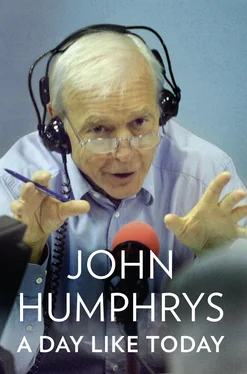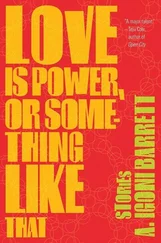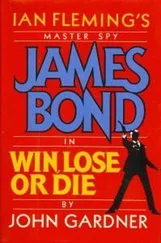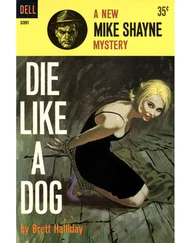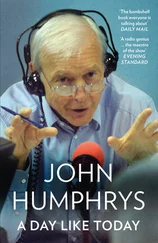‘People have got to know whether their president is a crook,’ he declared. A slight pause and then he went on: ‘Well, I am not a crook. I have earned everything I’ve got.’
The room was silent. We journalists looked at each other open-mouthed. Had he really said that? Had he really invited the people of America to consider that he might be a crook but to take his word that he wasn’t? And then to add the bizarre line about ‘earning everything I’ve got’. It was as though someone had accused him of stealing the takings from a drug store. Instead, as we were about to learn over the coming months, what he had been trying to steal was the presidency of the United States.
I said earlier that the greatest blessing the gods can bestow upon a journalist is luck. My luck had already played a huge part in my getting the best story in the world by the time I was still in my twenties. But my biggest break was yet to come. And it happened because of yet another piece of luck.
When I first went to the States for three months to set up the New York bureau I left my family at home in Britain and lived in a small apartment in midtown Manhattan. But then, when I got the correspondent’s job, I had to find a house big enough for my wife and two young children to join me – preferably outside the city but not too far. It wasn’t proving easy. And then I fell into conversation with a wealthy businessman who told me that his mother had a house in the small, delightful town of Irvington just a few miles north of the city. Would I care to rent it? It sounds perfect, I told him. But then he described it. It was a mansion. The servants’ quarters were bigger than our house in England. It was fully furnished down to the Steinway grand piano in the library and the Tiffany silver in the butler’s pantry. The lawns ran down to the Hudson River.
I told him that not only could I not afford the rent, I couldn’t even afford the heating bills. He looked shocked. ‘No, no,’ he said, ‘we’re not interested in making any money from it. Mother is living there alone with just the servants and we want to persuade her to move out for a year or so in the hope that she’ll agree to sell the wretched place. It’s just too big.’
So we did a deal there and then. He settled happily for my meagre BBC rent allowance and I rang my wife to prepare herself for a shock. That was pretty lucky. But the really big luck came when I met my neighbours. One of them just happened to be a Republican congressman called Peter Peyser. It may be overstating it a bit to say that I owe him my career, but not by much. The fact is that he was to give me the greatest gift a politician can bestow on a journalist: a tip-off. Not just any old tip-off. This was a gold-plated, diamond-encrusted tip-off that any journalist would have offered his soul for.
What Peter did was phone me on the morning of 9 August 1974 as the Watergate crisis seemed to be approaching some sort of climax to tell me he’d just come from a prayer breakfast at the White House. Would I perhaps be interested in what President Nixon had told him? I rather think I might be, I said. Well, he said, the president had told him he would be going on television this very evening to make an announcement.
With this president at this time there could be only one reason for it. Never in the history of the United States had a president been forced to resign but that is what Richard Nixon was planning to do before the sun had set over the White House. At least, that’s what I told my editor in London as soon as I’d hung up on Peter. ‘How can you be sure he’s going to resign?’ the editor asked me.
‘I can’t but …’
‘You know how much a satellite feed costs? Ten thousand dollars – that’s how much – and you can’t be sure?’
‘No, but it’s worth every cent if—’
He finished the sentence for me: ‘If you’re right, maybe. But if you’re not we’ll be ten grand out of pocket and the BBC will be an international laughing stock and your career will be toast before you’ve even hit thirty.’
‘And if we don’t do it and Nixon resigns tonight we’ll have thrown away a sensational scoop and it’ll be you standing outside your local supermarket begging for a crust to feed your starving children.’
Maybe I didn’t put it quite as strongly as that – editors are powerful people – but after a few minutes of heated discussion, he agreed and pretty soon I was sitting in front of a camera informing the British people that President Nixon was on the point of resigning. Twenty-four hours later, standing on the lawn of the White House, I understood the meaning of that old cliché so often applied to journalists: the privilege of a ringside seat at history.
A White House press pass entitles the holder to strictly limited access to the briefing room, and if you are ever foolish enough to try to stray off-limits without an official invitation the secret-service agents make sure you don’t get far. But on that historic morning, as we waited for Nixon to make his last appearance as president of the United States and board the helicopter waiting to fly him to political exile, the rules broke down. I remember wandering into the Blue Room and spotting one of Nixon’s two daughters sitting in a corner by herself looking out at the gardens of the great house. Five extraordinary years with all those memories: the triumphs and the humiliations and finally the most spectacular fall from grace any president had ever suffered. The journalist in me wanted to try to coax her into doing an interview – but the soppy father in me won. She clearly wanted to be alone with her thoughts.
Watergate and the downfall of the most powerful man in the world was – and remains – the biggest story of my career. Even as I write that sentence I question it. Bigger than the earthquake in Nicaragua which I reported in 1972? More than 10,000 people lost their lives, 20,000 were badly injured, 300,000 lost their homes. Bigger than mass famine in sub-Saharan Africa or revolutions in Latin America or wars on the Indian subcontinent? I reported on them all and neither I nor anyone else could even begin to put a figure on the number who died. Nobody died in Watergate.
And yet none of those massive human tragedies had even a fraction of the coverage given to the story of one flawed human being who tried to subvert an election by authorising a handful of shabby characters to break into the offices of his opponent and try to dig some dirt that might gain him a few extra votes in an election which, as it turned out, he won by one of the biggest landslides in American presidential history. What a supreme irony.
If Nixon had played by the rules he would have stayed in power for another four years instead of being thrown out in disgrace and quite possibly earned himself a place in the history books in the top rank of American presidents. Instead his name is synonymous with lying and deceit. And the name of an unremarkable office building in Washington has become the prefix for every serious scandal in the Western world ever since. It is the yardstick by which stories of political skulduggery are measured.
I stayed on in the United States to see Gerald Ford become president and then lose the White House to a relatively unknown peanut farmer from the Deep South: Jimmy Carter. Washington winters can be pretty miserable and Gerald Ford was about as boring as an American president can be. The most interesting thing about him was the claim that he was so dumb he couldn’t chew gum and walk at the same time. True or not I was keen to get out of Washington and, ideally, spend a few days in the sun. It so happened that Carter had just begun campaigning in Florida. I persuaded my boss in London that he was an intriguing character and just about a dead cert to win the Democratic nomination. He fell for it. I got my few days in the sun to do the interview as well as the chance to boast about spotting Carter’s potential before most of my British colleagues. Thus are reputations cemented.
Читать дальше
